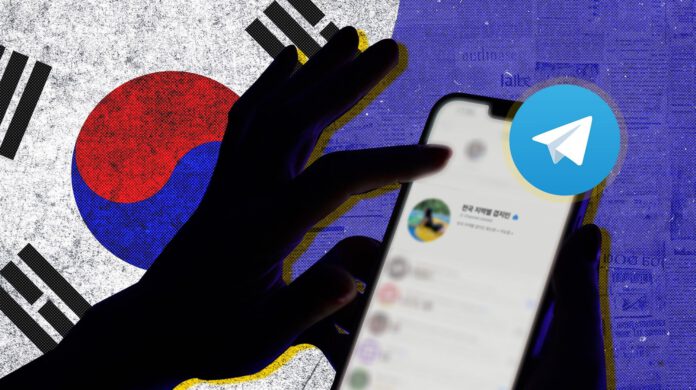
The Deepfake Crisis in South Korea, which came to light through a tweet by S.K Feminist on 25 August 2024, reveals a growing crisis involving the use of artificial intelligence to create pornographic videos that exploit the images of ordinary people. The victims include military personnel, students, and healthcare workers, with the issue extending from previous scandals such as the Nth Room case of 2022 and a related incident at Seoul National University in 2024. The public outcry following the exposure of these deepfake crimes has attracted global attention, especially after coverage on Korean TV and in newspapers.
In response, President Yoon Suk-yeol called for an investigation into the matter, and the National Assembly passed an amendment to the Act on Special Cases Concerning the Punishment of Sexual Crimes on 26 September 2024. The law, once approved by the president, aims to punish the possession, distribution, and consumption of AI-generated deepfake pornography with up to three years in prison or a fine of up to $21,000. The punishment for producers of such videos will increase, with sentences potentially reaching up to seven years following the amendment. However, the law’s effectiveness remains uncertain, as it is unclear whether it can address the underlying social and cultural issues at play.
The flow of events in South Korea often follows a predictable pattern of social crises, dramatic responses, and subsequent legislative measures. While legislation is an important step, its ability to bring about real change remains questionable. This raises the existential question: if such measures fail to protect individuals and prevent harm, can they ultimately save the fabric of South Korean society?
South Korea’s problem with Internet-based sexual exploitation is deeply ingrained and difficult to eradicate. The country’s high-speed internet, widespread access, and large percentage of users provide an environment where such crimes thrive. This is compounded by a culture of small groups and social conformity, where the widespread use of social software, including image sharing and deepfake videos, facilitates exploitation. Despite technological advances, the legal framework in South Korea has been slow to address issues like consent in sexual crimes, offering lenient penalties and enabling repeated offenses. Additionally, South Korea’s historical tolerance of sex work and distorted sexual values have not fundamentally shifted with legal reforms, leaving the sex trade and exploitation in a gray area.
Socially influential groups, such as entertainers, also struggle to address the lack of deterrents for exploitation, as the regulation of their image rights remains weak. Even when deepfake pornography first emerged in 2017, prominent victims like Scarlett Johansson chose not to pursue legal action, with similar responses from Korean celebrities, further perpetuating the normalization of such crimes. This reluctance to recognize the harm caused by deepfake pornography has shaped public perception, with many dismissing it as “fake” and thus harmless.
As a result, South Korea has become a hotspot for deepfake pornography, with a significant portion of global victims being Korean women. The number of such cases has steadily increased, with underage involvement rising sharply in recent years. The root cause of this issue lies in a society steeped in misogyny, where changing the legal framework and increasing penalties may not be enough. Only a radical shift in South Korea’s political and social systems can truly address the deep-seated nature of these crimes.
The issue of internet sexual exploitation crimes in South Korea, particularly deepfake pornography, is closely intertwined with the country’s complex socio-political dynamics. These crimes are a manifestation of the deep-seated misogyny that permeates South Korean society, stemming from both traditional Confucian values and the exacerbating influence of wartime military nationalism. The normalization of male dominance, coupled with the proliferation of deepfake technology, allows for the sexual exploitation of women without direct physical involvement, creating a dangerous global reach for these crimes.
The rise of such crimes coincided with significant political changes in South Korea, particularly following the election of President Moon Jae-in in 2017. With the feminist movement gaining momentum globally, the backlash from conservative and anti-feminist groups intensified, particularly targeting the increasing recognition of women’s rights. This backlash was amplified by the spread of deepfake pornography and the creation of online forums where these exploitative materials were shared. In this context, technology became a tool for perpetuating gender-based violence, allowing men to coerce and exploit women remotely, bypassing traditional societal structures.
In parallel, South Korea’s mandatory military service system, which is a unique aspect of the country’s gendered social structure, further entrenches male privilege. Military service, viewed as a form of patriotism and a rite of passage for men, elevates male status in society. However, the rigid and often violent nature of military life, combined with the economic challenges faced by men after service, has led to resentment and a growing sense of male victimhood. This sentiment has contributed to the growing opposition to feminist movements, as men feel they are being unfairly disadvantaged by policies that promote gender equality.
The complex interplay of these factors has created a cyclical pattern of misogyny and gender-based violence in South Korea. The rise of deepfake pornography crimes, in particular, reflects a societal shift where technology is exploited to amplify traditional gender hierarchies and male power dynamics. This phenomenon is further compounded by the political manipulation of gender conflicts, with some political leaders using the divisive issue of gender equality to rally male voters.
The long-term consequences of these trends are far-reaching. South Korea’s declining fertility rate, driven by economic pressures and unresolved gender conflicts, threatens the country’s future stability. The government’s failure to address these issues from a gender-sensitive perspective has deepened the divide, leaving women caught between multiple sources of oppression. Ultimately, to break the cycle of misogyny and combat the exploitation enabled by deepfake technology, a fundamental shift in South Korea’s social, political, and cultural structures is necessary. This includes dismantling the systems that perpetuate gender inequality and ensuring that women’s rights and voices are given due recognition in both policy and society.
Source: BBC, Nikkei Asia



